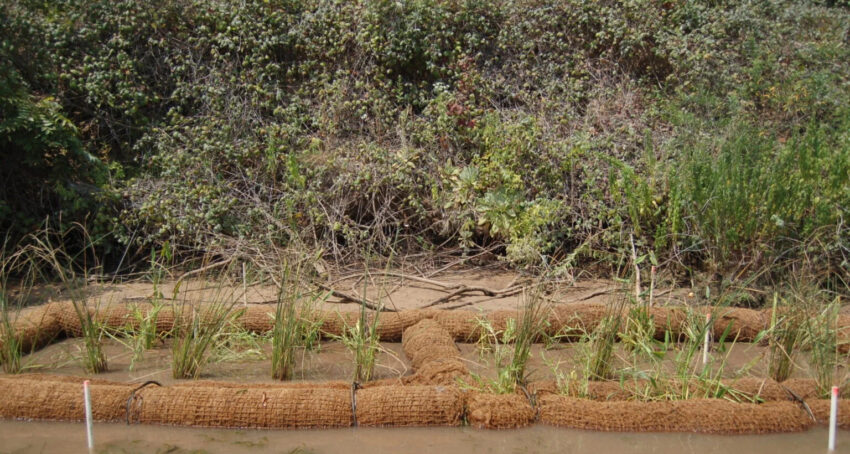Another week, another list of inspiring climate solutions! Share your thoughts and any additional stories we should uplift in the comments.
Simple, small-scale wildlife observations reveal bigger picture of overall ecosystem
New research shows that a small snapshot of interactions between species – like insects pollinating flowers or birds feeding on plants – is a reliable indicator of the health of an entire ecosystem. An alternative to costly, long-term wildlife monitoring, the study’s small-scale observation method can rapidly assess both the persistence of entire ecological networks and the expected success of restoration using minimal resources.
”Living shoreline” project in New Jersey is stopping coastal erosion
A habitat restoration team is helping protect New Jersey homes from flooding by restoring and developing marsh vegetation and coastal ecosystems that are naturally resilient to erosion. A better alternative to hard barriers like concrete bulkheads, these living shorelines not only help absorb the force of waves, they also improve water quality, increase plant and animal biodiversity, and sequester carbon.
Tackling the barriers to regenerative agriculture on Native land
While many Native American communities have been using what is now considered regenerative agriculture practices for centuries, their access to the financing needed to incorporate these techniques today has remained challenging. The Environmental Defense Fund and the Intertribal Agriculture Council are working on a three-year study with Native American ranchers to track agricultural and financial data as they implement practices such as rotational grazing, cover cropping, no tillage, and reduced synthetic fertilizers. The end goal is to understand the risks and benefits specific to Native land and then work with finance providers to establish programs tailored to support Native producers during the transition.
Colombian farmers turn deforested land into sustainable Amazonian farms
Through the Amazonian Farms initiative (Finca Amazónica), more than 450 families from seven towns in the south of Caquetá, Colombia have transformed their farms into spaces for soil, forest, and water conservation. Establishing agroforestry systems, growing trees near previously deforested streams, and creating a network of native seed conservationists has helped families withstand severe drought and maintain food sovereignty.
South African companies innovate to tackle solar power inequality
Blackouts intended to take pressure off South Africa’s ailing power grid have worsened since early 2022, leaving people without electricity for up to 10 hours a day. While folks who can afford it are moving to solar power to keep the lights on, companies are financing innovations to support communities who would otherwise be left in the dark. The Sun Exchange enables individual buyers to purchase solar cells with cash or bitcoin for crowdfunded projects in emerging economies and then lease them to schools, businesses, and other orgs which pay the investors for the power. Another company, WiSolar, has launched a rent-to-own as well as a pay-as-you-go solar service for residents of affordable housing developments.
Welcome to the Sunflower community

